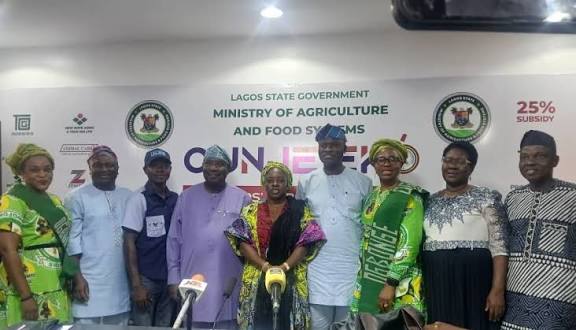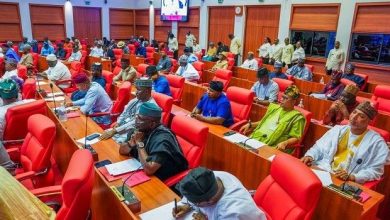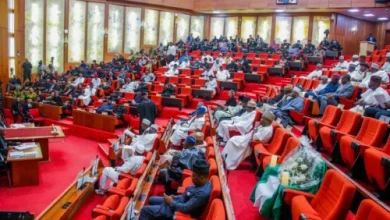Lagos set to launch Ounje Eko subsidy phase II

Lagos State Government has announced the rollout of the second phase of its ‘Ounje Eko’ Farmers’ Subsidy Programme before the end of November, aimed at boosting agricultural production and supporting farmers across the state.
The announcement was made by the Commissioner for Agriculture and Food Systems, Abisola Olusanya, during a press briefing at Alausa, Ikeja.
She described the programme as a key initiative of the Babajide Sanwo-Olu administration, designed to ensure farmers have access to quality feed, increase productivity, and stabilise food prices, particularly during the yuletide season.
Olusanya highlighted the success of the first phase of the programme, which directly benefited over 5,000 farmers.
She revealed that more than 993 metric tons of poultry feed and 265 metric tons of fish feed were distributed, sustaining the production of 258,000-layer birds—yielding over seven million eggs—and 177,100 catfish.
Egg prices, she said, dropped from N6,000 per crate to between N5,000 and N5,400.
Building on these achievements, Phase II of the subsidy programme will expand support to more farmers across multiple value chains.
The initiative includes a 25 per cent subsidy on poultry layer mash, broiler starter and finisher feed, as well as fish feed.
Grain will be distributed free to pig farmers, and agricultural equipment and inputs will be provided to crop farming clusters to enhance mechanisation and reduce labour intensity.
The programme will cover ten locations across the state, including Farm Service Centre in Agege, Agricultural Training Institute in Araga, Epe Coconut House in Mowo, Badagry Fish Farm Estate in Odongunyan, Erikorodo Poultry Estate in Ikorodu, Aiyedoto Poultry Estate in Ojo, Ministry of Agriculture Cooperative Office in Ajah, and the Armed Forces Resettlement Centre.
Participation is limited to registered farmer associations such as the Poultry Association of Nigeria (PAN-LAG), Lagos State Catfish Allied Farmers Association (LASCAFAN), and Farm Estate and Settlement Associations, to ensure transparency and accountability.
The government encouraged farmers to register with the relevant associations to access the benefits.
The commissioner stressed that the programme aligns with the state government’s commitment to food security, agricultural empowerment, and sustainable farming practices, positioning Lagos as a model for effective agricultural interventions.



